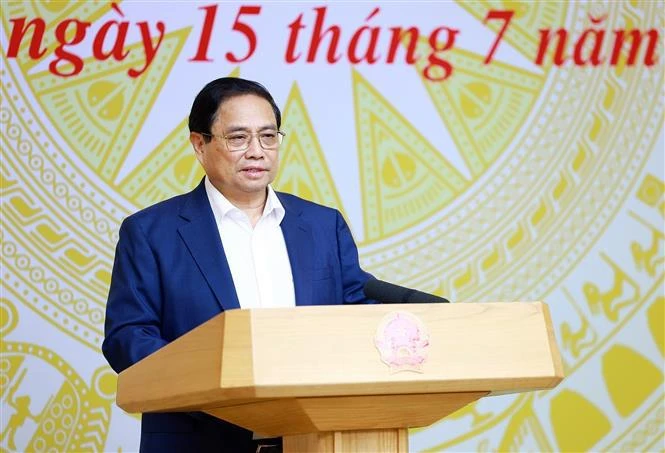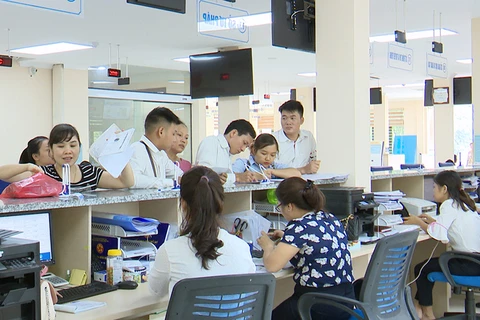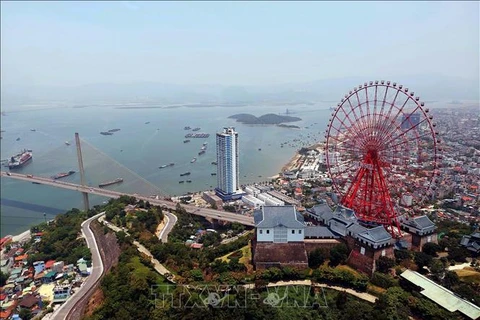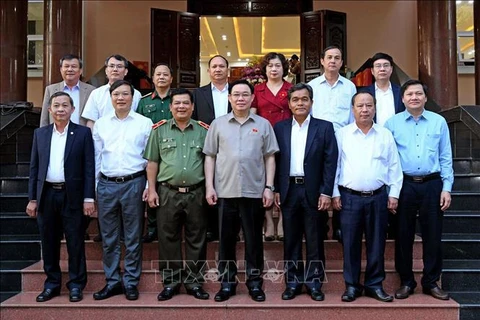
Hanoi (VNA) – Prime Minister Pham Minh Chinh on July 15 asked ministries, agencies, and localities to enhance the administrative reform, thus contributing to fulfilling socio-economic targets.
Chairing the 8th meeting of the Government’s Steering Committee for Administrative Reform in Hanoi, the leader also lauded efforts in the work in the first half of this year.
Chinh, also head of the committee, pointed to limitations such as the inflexible management, pending documents, and lax disciplines, as well as causes behind them, including inadequate attention, unclear task assignment, the lack of evaluation tools, and complex, inflexible law-making process, and others relating to infrastructure, personnel quality and coordination between agencies.
He stressed the need to seriously abide by the Party’s guidelines and the State’s policies and laws, urging stronger determination, greater efforts, more drastic actions, more dialogues, and the intensification of the communications work, with people taken as the subject and the centre.
For tasks and solutions in the time ahead, the PM requested stepping up the review and handling of bottlenecks related to institutions, mechanisms and policies; increasing dialogues to facilitate production and business; tightening disciplines; enhancing digital transformation; and promoting cashless payments.
The People’s Committees of Hanoi, Ho Chi Minh City, and Binh Duong and Quang Ninh provinces were asked to pilot the one-level public administrative service centre model according to the one-stop-shop model from September 2024, with its outcomes to be reviewed in 2025.
Ministries, agencies, and localities need to complete public investment allocation within this month to reach the yearly disbursement rate of over 95%, Chinh emphasised.
Meanwhile, the arrangement of administrative units at commune and district levels for 2023-2025 should be basically done in September, towards all-level Party congresses in 2025, he continued.
The leader assigned specific tasks to the ministries of home affairs, justice, finance, and public security, and the State Bank of Vietnam.
Notably, the Ministry of Finance will continue studying and proposing measures to remove obstacles to the implementation of packages in support of production and business, while boosting digital transformation in tax services, and public finance and asset management.
The Ministry of Public Security will further put in place VNeID, the only app for the implementation of online public services, and work on more utilities on the app.
According to the steering committee, in the first half of this year, up to 2,870 documents were issued to serve administrative reform, and 168 business conditions, along with 247 administrative procedures either reduced or simplified.
The number of ministry-level public administrative units was cut by 33, and personnel at ministries, agencies and localities downsized by 3,853.
A 30% increase in base salary for government employees to 2.34 million VND (92.20 USD) per month has been applied since July 1.
During the reviewed period, State budget revenue met 60% of the projection and rose 15.7% year-on-year.
Many of Vietnam's indexes were upgraded, with its business environment up 12 notches to the 106th position in the world business freedom index. The country was also ranked 46th out of the 132 economies in the global innovation index, up two places compared to 2022./.






















